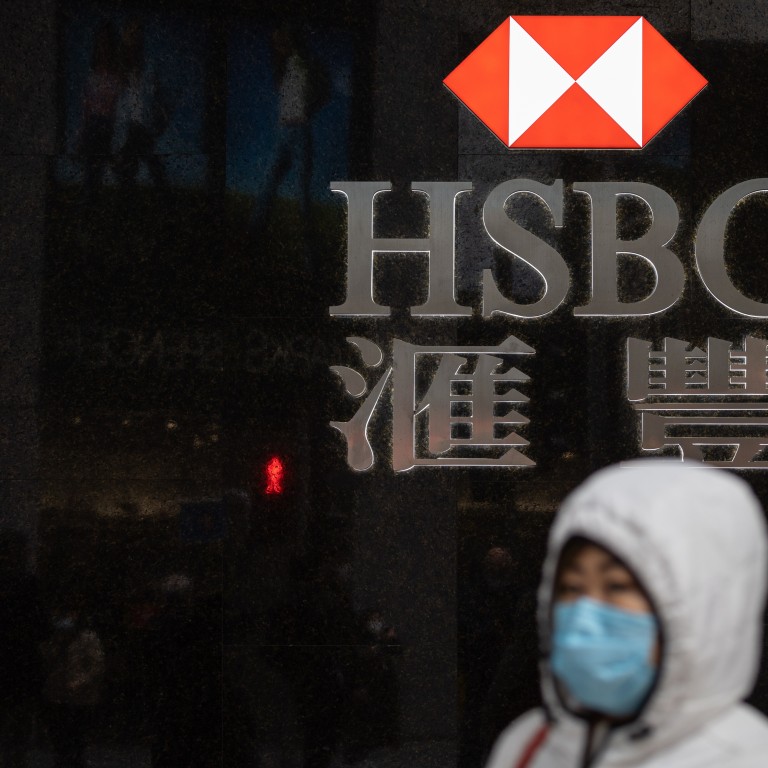
Will Hong Kong banks cut prime rates below record low of 5 per cent?
- HSBC says will not cut best lending rate from 5 per cent
- Other Hong Kong’s banks likely to hold the line, say analysts
Hong Kong banks are unlikely to follow the lead of the Hong Kong Monetary Authority (HKMA) and cut prime lending rates as they are already at record-low levels, said industry sources and banking analysts.
“It is hard to go any more further as the bank’s profitability is very thin already,” said Eric Tso Tak-ming, chief vice-president of mReferral Corporation, a mortgage consultancy.
History shows us that other Hong Kong lenders are likely to hold the line even after the Fed made two emergency rate cuts this month to counter the economic disruptions triggered by the coronavirus pandemic.
In the wake of the 2008 global financial crisis, the Fed lowered interest rates to zero and the HKMA cut its base rate to 0.5 per cent. Lenders in Hong Kong, however, kept their prime rates at between 5 per cent and 5.25 per cent.
In Hong Kong, a substantial part of home mortgages in the local banking industry are based on the prime rate, the rate that banks charge their best customers.
Most banks price mortgage rates between the prime lending rate minus 2.5 per cent to minus 3 per cent. If mortgage rates were to fall to 1.75 per cent, that would be below the cost of the funding for most banks, Tso added, rendering it a losing business.
To be sure, one veteran banker said that the extent of the health crisis may force the banks to respond.

In the unlikely scenario that Hong Kong’s banks do cut prime lending rates, it would only amount to a token gesture, the banker said.
Markets also weren’t expecting a big cut in prime lending rates.
The one-month Hong Kong Interbank offered rate rose to 1.26 per cent at the Monday morning fixing from 1.14 per cent last Friday. The three-month Hibor dropped slightly to 1.25 per cent on Monday compared with 1.27 per cent last Friday.
Hong Kong’s banks have already lowered prime rates to a certain degree last year, when anti-government protests rocked the city in its worst political crisis in decades.
HSBC and other commercial lenders cut their prime rates by 0.125 per cent for the first time in 11 years in November to support local businesses as the economy slipped into its first technical recession since the global financial crisis.
Additional reporting by Alison Tudor-Ackroyd

